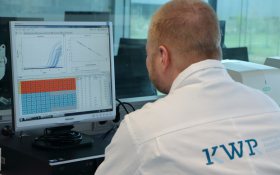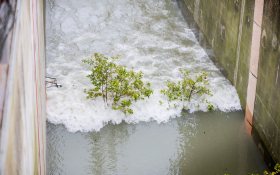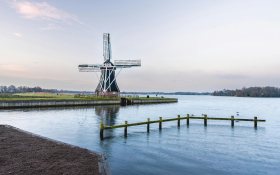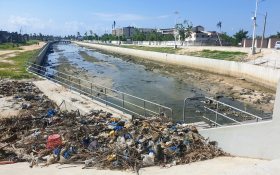Watershed brings transparency of WASH financing in India
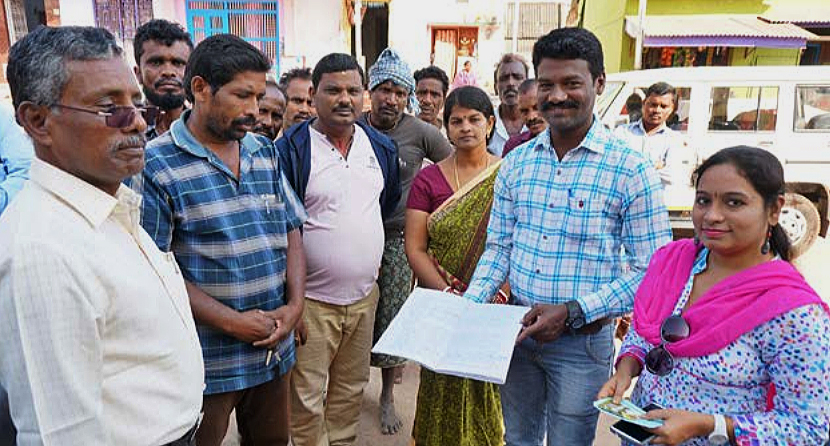 In Odisha State, India, spending on water and sanitation—as a percentage of the state’s gross domestic product and as a percentage of the total state budget—has recently dropped. At the district level, financing of operations and maintenance is unclear, making it difficult to hold authorities to account for failing systems.
In Odisha State, India, spending on water and sanitation—as a percentage of the state’s gross domestic product and as a percentage of the total state budget—has recently dropped. At the district level, financing of operations and maintenance is unclear, making it difficult to hold authorities to account for failing systems.
These are two outcomes of a recent study as part of the Watershed programme to track financial flows on water supply and sanitation. Watershed is a strategic partnership between the Dutch Ministry of Foreign Affairs and IRC, Simavi, Wetlands International and Akvo.
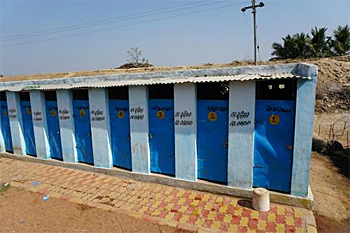 The Indian government is increasing its expenditure on toilets.
The Indian government is increasing its expenditure on toilets.
Financial transparency
In this case budget allocations and expenditures by national, state and district authorities for Odisha State and Ganjam District in India, have been tracked.
In articles on the websites of Watershed and IRC Wash, governance expert Andrea van der Kerk at IRC Wash, discloses how the data has been collected and how it was possible to get a better understanding of the financial flows.
Ambitious WASH goals
The government of India has set ambitious goals for rural drinking water and sanitation, and has two main flagship programmes to achieve this.
Firstly, the government aims to make the country free from open defecation in 2019. Secondly, it aims to bring piped drinking water to at least 90 percent of rural households in 2022 and make sure that at least 80 percent have a household connection.
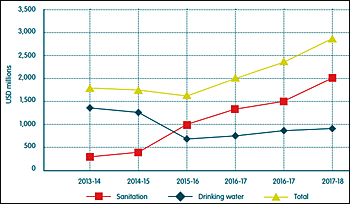 National investments by Indian Ministry of Drinking Water and Sanitation for rural programmes. Source: CBGA (2017)
National investments by Indian Ministry of Drinking Water and Sanitation for rural programmes. Source: CBGA (2017)
Finance of sanitation up, drinking water down
Overall, the government of India is making impressive investments to increase access to household sanitation and achieving tangible results.
By looking at the funding flows at national, state and district levels, the study reveals that for fiscal years 2014-2015 to 2017-2018, the ministry’s investments in sanitation multiplied fivefold.
However, at the same time allocations to rural drinking water decreased by a third.
Uncertainty on maintenance
The long-term sustainability of the current sanitation approach is uncertain, as the programme emphasises construction of toilets at the expense of maintenance, behavioural change and waste management.
In Odisha State, spending on water and sanitation—as a percentage of the state’s gross domestic product and as a percentage of the total state budget—has recently dropped.
At the district level, financing of operations and maintenance is unclear, making it difficult to hold authorities to account for failing systems.
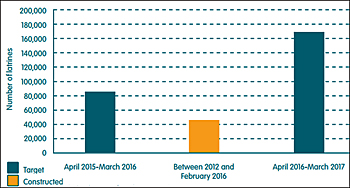 Ganjam state set ambitious goals to build new latrines. Even the budgets are there. But between 2012-2016 only 40.000 were really build.
Ganjam state set ambitious goals to build new latrines. Even the budgets are there. But between 2012-2016 only 40.000 were really build.
District level
At the district level, it has not been easy to get relevant budget data and the progress data do not always match with the national information system. It has proven difficult to analyse how much is actually spent and by whom.
With India's decentralised approach to WASH service provision, the Gram Panchayats (GP) and Village Water and Sanitation Committees (VWSC) play important roles in operation and maintenance (O&M), yet there is little information about their performance, budget allocations and spending.
Interviews with district authorities and VWSC representatives indicate that the revenue from tariffs is often insufficient to cover recurrent O&M costs.
About Watershed
Watershed is a strategic partnership between the Dutch Ministry of Foreign Affairs and IRC, Simavi, Wetlands International and Akvo.
This partnership is working in Kenya, Uganda, Mali, Ghana, Bangladesh and India for civil society to lobby government on WASH and water resource management over the coming five years.
Read the full working paper (as a pdf-file): Mapping public finance for rural drinking water and sanitation : Odisha State, Ganjam District
This news item is based on publications on the websites of Watershed and IRC Wash.
(top photo: Ganjam and Gram Panchayat officials and the Village water and sanitation committee with the tariff collection registration)
Read also on this website
● Stockholm World Water Week 2016: Watershed partnership pursues to hold governments more accountable for sustainable WASH services, 1 September 2016
● Smart tax can bridge financial gap to meet universal access to water and sanitation, 17 June 2015
● Country: India
More information
Watershed
verhoeven@ircwash.org
www.watershed.nl
IRC Wash
The Hague, the Netherlands
+31 70 3044000
www.ircwash.org
